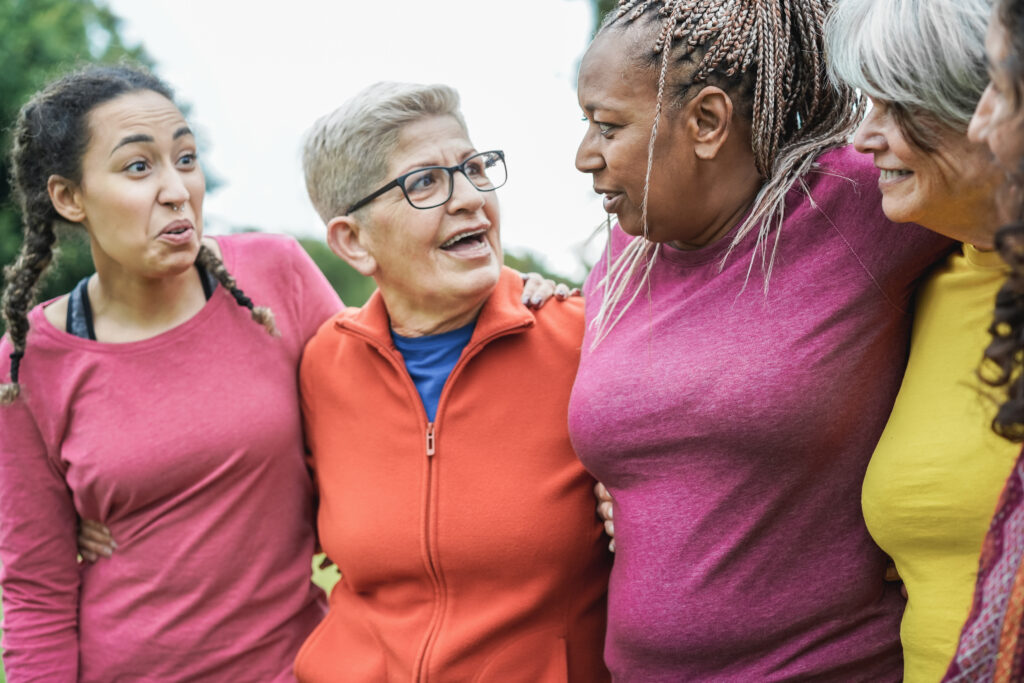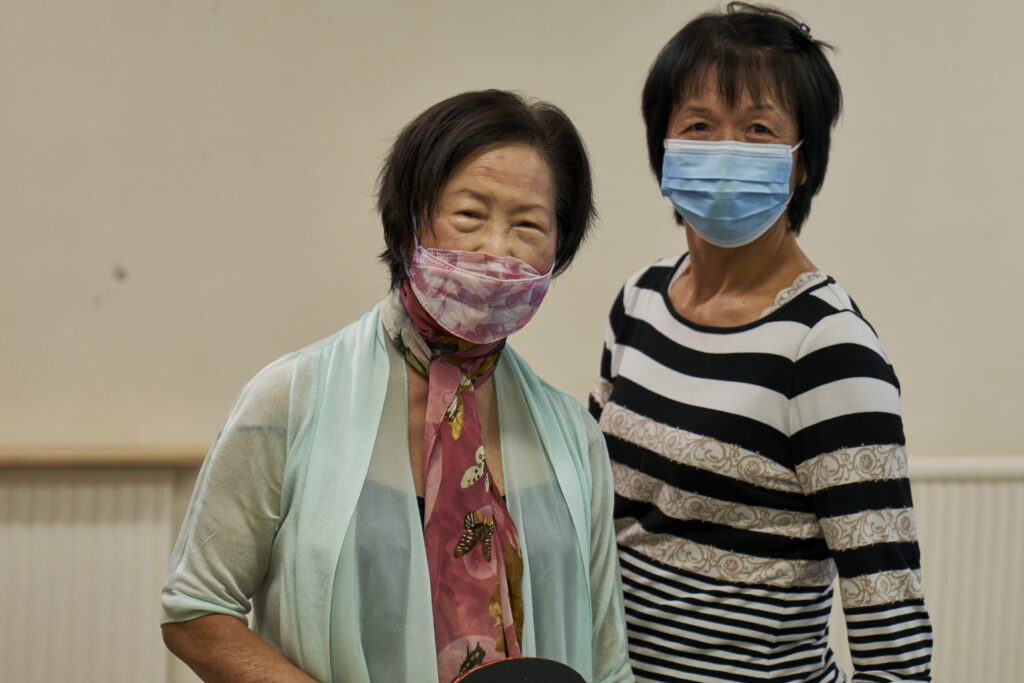About us
Tackling gendered ageism in healthcare
In My Prime is dedicated to helping women live healthy, active and connected lives as we age.
We live in an ageing society. Women over 50 make up around 20% of our population, and that proportion is on the rise. We are active contributors to our communities: nearly half of us are employed, and around 1 in 4 of us are volunteers. A similar share of older women take on unpaid caring roles, looking after grandchildren, children and parents across the generations.
However, as we get older, the effects of gender inequality combine with ageism, which affects older women’s health and emotional wellbeing. An example of this is the way our health needs have often been ignored by medical research and policy – with much of the existing health research for women over 50 focused on menopause. While important, menopause is just one aspect of our lives, and the older we get, the less relevant it becomes compared with other concerns.
There can also be a recurring sentiment among some of us of feeling sidelined or “invisible,” which can have direct impacts on our wellbeing.
One of the solutions to feelings of invisibility is to increase our representation in the media and the public sphere. Presently, negative stereotypes of older women that emphasise age rather than experience or wisdom are common.
Such skewed representation can contribute to negative self-perception, especially in a society that often seems to give primacy to youth. It’s noteworthy that older women face a heightened risk of poor self-image, even more so than their male counterparts.

In My Prime aims to address this. We consulted with the community we serve, to bring together accurate, positive representations of older women in all their strength and power. And we provide useful, accessible, and reliable information on a range of health and wellbeing topics relevant to women over 50 – including menopause, and much more!
Our journey towards meaningful inclusivity
In My Prime aims to include women from all backgrounds and communities, as well as non-binary, trans, intersex and gender diverse people. We are continually working towards meaningful inclusivity.
However, we acknowledge that In My Prime will not meet the needs of every person in the community. This resource is in English, and most of the health and wellbeing information it contains addresses the needs of cisgender women (meaning women whose gender identity matches the sex they were assigned at birth).
We won’t always be able to provide advice or suggestions for issues relating to specific disabilities or health conditions, to women from migrant or refugee communities, First Nations women, and women from the LGBTQI+ community.

While we have tried to include information throughout the website that supports as many people as possible, there is a wide range of other organisations that provide information tailored to the needs of different communities. Some that we recommend include:
Being inclusive of everyone is a journey and we may not always get it right. This website is a living resource, and we will continue to seek feedback from the range of different communities who make up older women (cis and trans-inclusive) and gender diverse people living in Australia to make In My Prime the best it can be.
Who we are
In My Prime is an initiative by Women’s Health Victoria in partnership with The University of Melbourne.
Women’s Health Victoria is a statewide, feminist, nonprofit organisation working with government, the health sector and the community to improve health outcomes for women (cis and trans inclusive) and gender diverse people. We advocate for healthcare rights and access, deliver health promotion resources, and operate vital information and support services, so that all Victorians have the opportunity to access optimal health and wellbeing, free from bias and discrimination.
The University of Melbourne is Australia’s number one university and world leader in education, teaching and research excellence. Professor Martha Hickey from the Department of Obstetrics and Gynaecology leads research on the health and wellbeing of older women.
The photographs in our gallery are by Ponch Hawkes and Jodie Hutchinson. Copyright is held by the artists.
Ponch Hawkes is a Melbourne-based photographer. Her work, which contains a playful undercurrent, explores Australian society and cultural life from a feminist perspective. Ponch’s work is included in many major museum collections including the National Gallery of Australia and the National Gallery of Victoria.
Jodie Hutchinson is a Naarm/Melbourne-based photographer who specialises in performance and portrait photography. Jodie holds a Diploma in Photography, and is completing her Master of Fine Art.
Women’s Health Victoria and the University of Melbourne also thank the following people for their contribution to In My Prime:
- The 30 models featured on this website for their incredible generosity in participating in this project for the benefit of all women, everywhere.
- Jane Scott for project managing the photography and the exhibition of Ponch Hawkes and Jodie Hutchinson’s photographs held to coincide with the launch of In My Prime.
- The members of the focus groups who informed the development of the website.
- Shayna Burns for her generous pro bono SEO consultancy services.
- The clinical reviewers who contributed their time and expertise to ensure the accuracy of the health and wellbeing information on the website:
- Dr Lydia Brown, The University of Melbourne
- Dr Deborah Neesham, The Women’s
- Professor Cassandra Szoeke, The University of Melbourne
- Dr Monique Watts, Alfred Hospital and Victoria Heart
- The members of the Advisory Group who provided guidance on the health and wellbeing information on the website.
- The team at Attractor Solutions for their work developing the visual identity for In My Prime and building the website.
In My Prime is proudly supported by the Victorian Government, the Royal Women’s Hospital, the NHMRC and the Melbourne Academic Centre for Health.